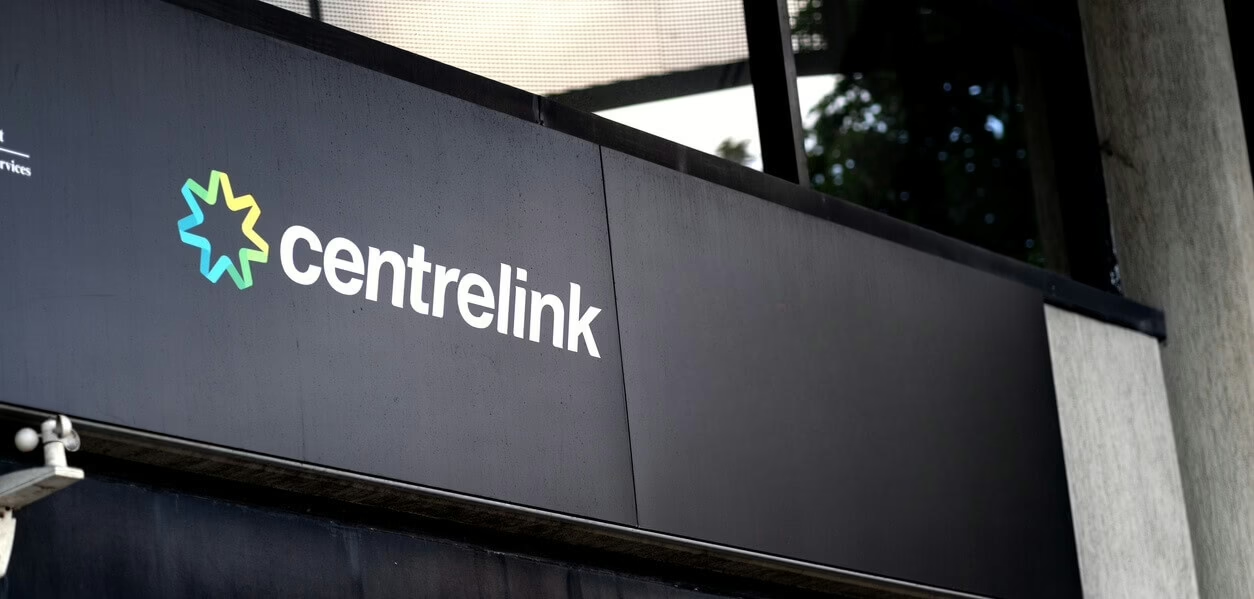As you are aware, most older Australians can qualify for some type of entitlement. This might be a full or part Age Pension, a Commonwealth Seniors Health Card, for those not on a pension, or other special government supplements.
What tends to fly under the radar is just how important your relationship status is when it comes to applying for these entitlements. Whether you are a single or a couple can affect every aspect of your entitlements including:
- if you get a payment
- which type of payment that might be, and
- how much you will receive
You also don’t necessarily have to be living with a partner in order for Centrelink to view you as a couple.
Sound confusing?
You’re not alone. Many older Australians struggle with these definitions of being partnered or otherwise, in particular, with the need to prove relationship status.
Here’s a short summary of the rules. Remember our support team on is here to help you understand these relationship definitions and if you might be required to update Centrelink on any aspect of your status.
The top level reasons why Centrelink may have an interest in your relationship status is that this will determine whether you are paid a single or couples rate of pension (should you qualify). It will also determine which income and asset thresholds you are tested against and therefore the rate you will be paid.
Being a couple is defined as:
- being married,
- in a registered relationship, or
- in a de facto relationship.
Interestingly, de facto relationships are not defined by a minimum time, which begs the question when consecutive sleepovers might become a de facto relationship for pension assessment purposes.
Those in a relationship who then separate, are considered to have become singles if there has been a physical and emotional separation. Such a separation includes partners who separate but continue to live in the same house, in which case a ‘separated under one roof’ declaration is required from each person. Such ‘ex-couples’ will need to have their situation regularly reviewed by Centrelink to ensure the correct amount is being paid.
Singles who share housing may also need to submit a ‘relationship details form’.
You are required to inform Centrelink of any change in relationship circumstances. Should you not do so, and you receive more than your correct entitlement, you may be required to refund the amount and/or face other penalties. Such changes include couples who start a relationship who also have to complete and return a ‘partner details form’.
At times Centrelink will request a referee verifies your status. The preference is for referees to be of people of ‘some standing’ in the community, such as a minister of religion, doctor, police officer, social or welfare worker, solicitor etc.
Just defining whether you are a single or couple is not as simple as it seems
And there’s a lot riding on getting your information right.
If you are uncertain of your status, or how Centrelink rules might apply you can book a consultation. Our friendly team are always happy to explain the finer points of Centrelink regulations. You can also look at the difference in your entitlements based on your relationship status on our free entitlements calculator.
What do you think?
Are these regulations unnecessarily complicated and do you think they are fair?






Are relationships such as brother and sister, mother and daughter etc classed as singles or couples..?
Hi Dagmar, Centrelink class couples essentially as two people involved in a romantic relationship. Family members who live together are not considered to be couples.
why couples staying together get less but 2 siblings staying together are not affected? I do not see the rationale.
It should never be forgotten that other people’s taxes fund the Age Pension and associated supplements so the rules are necessary to ensure the best use of Taxpayer’s money.
As with any welfare payment, Age Pension is based on need. It’s fair and reasonable to expect anyone benefiting from Taxpayer funded payments to be honest and transparent about their situation and clearly demonstrate their need for the payment.
The aged pension is not charity from put upon current tax payers to recalcitrant and shifty old people as you portray it. It is a return on pre-paid contributions, paid into the system by these people as part of their taxes and other charges throughout their working lives. The current transport infrastructure you use, the civil infrastructure you use, the educational infrastructure you have benefited from were all paid for by the very people you affect moral superiority over.
Thank you Phil!! Took the words right out of my mouth. How many times do I see the current govt describe the Aged Pension as ‘Welfare’. Just! Plain! Wrong!
my taxes fund my pension
I truly hate this slow shift towards labelling people who receive the aged pension as some sort of bludgers. Aged pensioners have contributed to society their whole working lives. Not everyone has a fortune in superannuation entitlements. It’s just not the case. We can’t all afford to be financially secure in retirement, there are so many factors that come into play.
Plus this rubbish that two can live as cheaply as one, it’s nonsense. All people that qualify for the aged pension should qualify at the same rate. It’s just non sensical to me that a couple receives less then a single person. Your food costs are higher, your utility bills are higher and on the aged pension you receive less as a couple then two friends sharing a home.
I support Ian’s comments. Both people in a couple and receiving an age pension should receive the same amount. The idea that “Two people can live as cheaply as one” belongs in the “dark ages”. Perhaps in the 1950s two pensioners led very quiet lives, turned off lights in kitchen after eating evening meal together, settled together in the lounge room with a small lamp, and small TV, and a small electric heater, also shared one car. Today’s pension couples lead much more active lives, require two cars, and within the home might cook their meals at different times (using twice the amount of electricity to the 1950s couple), then watch TV but often different programs, so using two tvs in separate rooms and thus requiring extra lighting and cooling. Often today’s pensioner couples might also be working on computers in separate rooms and also have separate hobbies and social interests.
Totally agree. A couple has more costs than a single person. Besides the obvious, what about medical costs and medication costs. That is a high expense and must be considered.
Marjory, you do realise that before about 1990 every person paid 7.5% of their wages into a pension fund? The National Welfare Fund. We got a stamp to prove we paid.
All that money set aside for us and paid by us, was confiscated by the government.
So, while you personally might rely on taxpayer dollars when you retire, a lot of us – pre-superannuation’s days – paid for our pension with an extra 7.5% deduction each pay.
Money that mysteriously was rolled into consolidated revenue.
I think it’s fair those of us working pre-super, get access to what we were not only promised, but directly paid for.
These rules seem unnecessarily complicated.
I had anticipated a simple life when I retired this is not to be it’s much more complicated.
Ken Cochrane
Ken I agree with you. I expected to have an easy life for my partner and I. What do we get overly complicated forms to fill out and time consuming waits on the phone. Why is it so hard to give the very people who paid taxes all their lives so we can get the pension (which we have paid for all these years). I feel the system needs to be “fixed” so that it is much easier to get the age pension. I don’t care about asset tests etc if you have millions or if you are broke you have paid the corresponding amount of tax to conform with your income. So where’s the problem. Pay us all the same rate as soon as you stop work and apply. So what if some people have more money in the bank than others. Pay everyone the same, single or couple. We’ve paid for this and we are entitled to it. Sorry for the rant but I am p…ed off with the way this works.
I AM 90y.o., and wife 88. Both on minimum age pension. She has ~$33,000 in bank plus share of household assets for pension purposes. She exceeds Level 4 Alzheimers, and severe osteo, so beyond helpless. There is technically $52,000-p.a. available for carers and other needs, but a very large portion of that goes in “administration” charges. But why she is forced to receive almost no Age Pension, because of my cash assets seems inequitable. I will always care for her but hope not to be forced to divorce her, but live under the same roof?
Hi Trevor, I’m sorry to hear of your wife’s condition but commend you on your commitment to caring for her. As you have said Centrelink will assess and pay each of you as a couple regardless of your individual income/assets. Depending on the level of support your wife requires if she were to move into an aged care facility then the two of you may become eligible to be assessed as a couple separated due to ill health which has a higher pension amount. There would obviously be a number of factors to consider though so this is general information only to help inform you on your options.
What is the situation if you are in a de facto relationship (long term) and your partner , although would easily qualify for a full pension, is philosophically opposed to government help, and definitely does not want to apply. Also does not want to be on the form I send, can I then apply for couple rate but just for one person??
Hi Barbara, that’s quite a unique position you have explained. In such a scenario Centrelink will still class the two people as a couple. Therefore without the philosophically opposed person’s details their partner will not be able to get approved for any pension.
Probably not so very unique. It’s a tough one. Everything else in the modern age (eg ability to own assets, other income, taxes) is per individual, not contingent on family status. Seems positively feudal!
Very confusing we don’t need this at our age.
Honestly, I don’t believe these rules are fair and necessary. If you’re self funded retiree, this is designed to place the person /partner who is entitled to receive a single pension under your financial umbrella. We were all working hard and paid our taxes and if, towards the end of our life, one wants to partner with someone – should our Government use our money to pay for this choice? This is in place to accelerate use of savings / Superannuation with a hope that we die in the process and the Centrelink will not have to pay a cent.
Yes it seems unfair and complex and we pensioners really do not have it explained in detail when we retire… i need monies to fund my house upkeep / maintenance , or indeed a new car for travelling but not sure what i can draw down for my super with losing a lot on pension pay ment s..
Grieves me when I have to pay someone to explain rules that are directed at me in the first place. Aged pension, SMSF, aged care fees, Centrelink and personal tax. Agree with Ken above; it’s not retirement but a bureaucratic battle. Sick of the whole system and needs to be drastically cleaned up.
Totally agree Arctium Centrelink and the Government make it so difficult and expect you to update them every time you sell a few shares or buy a new car or use some of your savings to pay bills or repairs on your house. I find it extremely stressful and demeaning and very overcomplicated and the sad thing is I think they do it on purpose in an attempt to drive you to an early grave so they can save a few dollars!
Unfair, complicated, anachronistic. I have been financially independent my whole adult life and have never expected a man to support me. I have had romantic companionships at various times, but never shared a bank account or any assets (other than a fridge and washing machine when living under the same roof). Any household expenses are split evenly as do share households, and I don’t have any children. If Centrelink assesses one of these as being “a couple” I feel it can jeopardise my independence and pave the way for such a companion to possibly make a claim in the future on 50% of my assets in the family courts. Scarey!
Do I need to live alone and be sure never to have any hugs or cuddles?!?!
Jen this is a common problem but you may need to get a “Co-habitation Aggreement” drawn up by a solicitor. You decide on the terms of that aggreement that suit both of you. This protects the assets of both of you.
It does not matter about whether you can manage or not centrelink does not care. It is an section of the government that is there to reduce payments to people who need it. I paid taxes for fifty one years before going on a pension. I got the single rate as I was divorced.
I decided to move interstate so I sold my house. Big mistake. Centrelink quickly applied deeming rates of 2.25 percent. The most I got for my money in the bank whilst I purchased another house was 0.25 percent. I got $1239.74 interest. The government took $7,171 from my years pension. This left me $5,931 short after applying interest. Fortunately I lived with family for twelve months. I am well within the assett test but am struggling to get my pension back.
hi. my husband is on pension, centrelink put us on section 24 which he’s getting paid as single rate, my question is can i work? is there any minimum earnings only i get so his pension will not be affected?
I have paid taxes all my life as a working Australian. That tax has been as an individual. my wife is the same. So why are we shortchanged when we get a pension as a married couple?. The system discriminates against couples. There is no argument that can provide a reasonable explanation as to why couples are discriminated against.
If this was a “fair” system, as individuals, we would all be getting the pension at the same rate.!
What’s the situation if you are married to a foreign national who receives a government pension from his country but has not been here long enough to qualify for a pension top up.
Will I be treated as a couple for assets when I reach pension age next year.
Hi Anne, thanks for sharing your scenario! Centrelink determine single vs couple applications based on whether or not you are in a relationship with someone, not whether or not you are both eligible/applying. So yes you will still be assessed as a couple with your husband’s income/assets potentially impacting how much Age Pension you receive
My wife and I separated during her battle with breast cancer and have been living independently for more than six years. We remain on friendly terms and regularly see each other at family occasions. As we live more than 100kmh apart we keep rooms at each of our homes. Would Centrelink consider us as single or as a couple?
Hi Brian, thank you for seeking clarity. Based on what you have said you would likely be considered separated however as with all things Centrelink, there are some ifs, buts and maybes. CLICK HERE to learn more about the criteria Centrelink use to assess whether two people are considered a couple or not.
All this (current Age pension rules for couples) seems very complicated and unfair.
As others have said aged pensioners have earned this right through many years of paying taxes. They should be treated as individuals not as couples and paid Age pensions accordingly.
I don’t know when Age Pension rates for couples began, however I believe that modern day lifestyles and costs have changed vastly since those days. Once an aged couple were expected to cook one evening meal and to settle down in one room watching tv making electricity and other heating costs possible to share. Today these couples are often involved in hobbies requiring an additional room and additional light/heating/cooling or going out to pursue activities and cooking meals at a separate time to their partner. All these increase living costs and make a full age pension for each person in a couple absolutely essential.
married couple, separate bedrooms, bathrooms. jointly own home. classified as single or couple?
Hi Gail, thanks for your comment! Given you are still married Centrelink would likely assess you as a couple. These situations can get tricky though and you can read more about the factors Centrelink take into account HERE.
as a couple who is the pension paid to
Hi John, for couples the Age Pension is split in half and you each receive a payment to an account of your choosing.